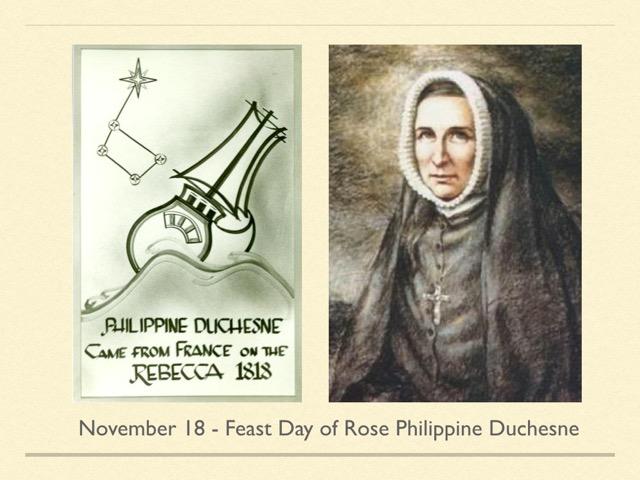Philippine was above all a woman of profound communion. All her life, she built bridges between worlds: between Europe and America, between the worlds of rich and poor, between races: Europeans, Native American Indians, Blacks, and the new people being forged on the American frontier. In a time of war and class division in France, Philippine was peacemaker, nurturer and healer to those who suffered. In America, she offered to young women an education previously available only to young men. She opened free schools for the poor where none before had ever existed. She respected the dignity of native Americans even as their lands were being stolen and their ranks decimated by less caring immigrants. In short, Philippine spent her whole life entering into new worlds: building bridges, striving to understand other people's experience - in a word, creating communion.
Click here to access the bicentennial website on rscj.org.
A Philippine Duchesne webpage will also be available soon on rscjinternational.

